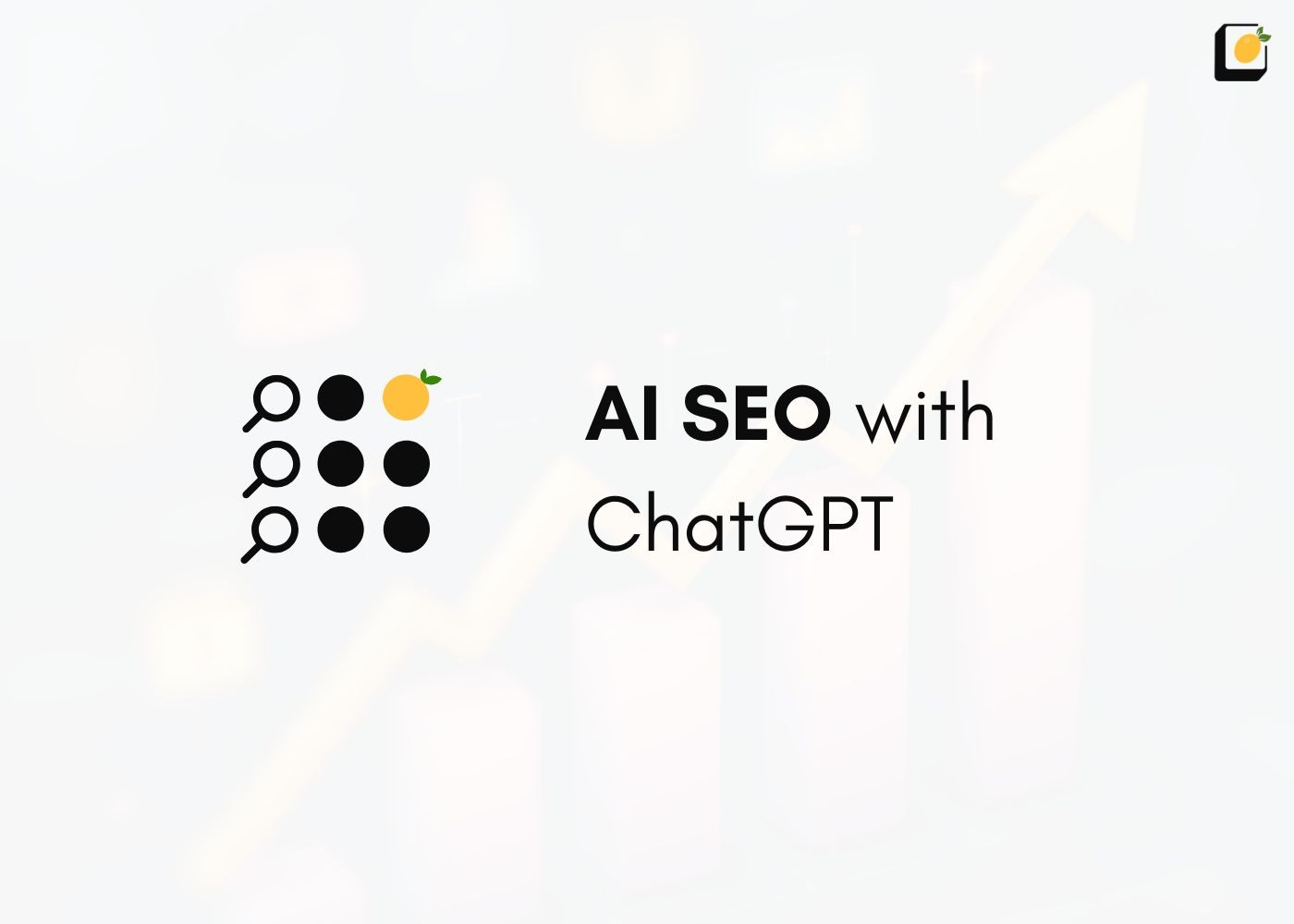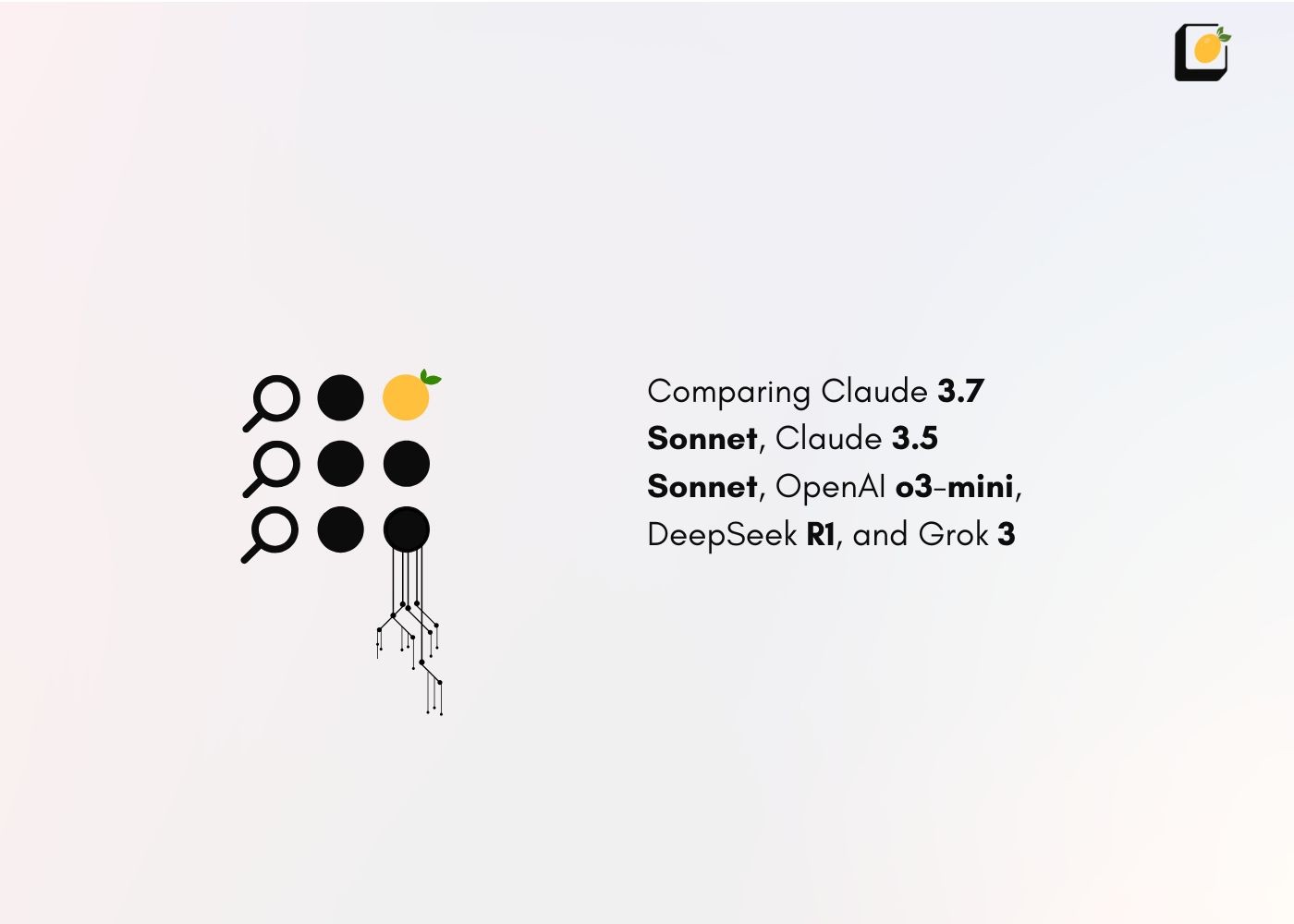AI SEO with ChatGPT: Your Easy Road to More Traffic
By Swarit Sharma (Jan 17, 2025)
Are you tired of your website not showing up on Google? Want to attract more visitors without spending a fortune on ads? Let me show you how AI SEO and ChatGPT can help.
Did you know, only 23% rank in the top 3 results of the first page of search?
While the figures may seem daunting, you can get around this by combining artificial intelligence with proven SEO strategies and boost your website's visibility to potential customers.
Even if you're new to SEO, this guide will walk you through everything step by step. You'll learn how to:
Find the Right Keywords to Target
Create Content That Search Engines and Users Will Love
Optimize Your Website for Better Rankings
Measure Your Success and Make Improvements
What Are SEO and ChatGPT?
SEO stands for Search Engine Optimization. It's the process of improving your website so that search engines like Google can find it easily. Think of SEO as making your site more attractive to Google, so it shows up higher in search results.
ChatGPT (Generative Pretrained Transformer) on the other hand, is an LLM developed by OpenAI with the capacity to simulate real conversations with a human. It's like a virtual assistant that can, in this particular case, help write content for you.
Using ChatGPT, you can help you generate articles, product descriptions, and more, which saves you time.
Don't worry if you're not tech-savvy. I'll walk you through it step by step.
Step 1: Find the Right Keywords
The first step is to figure out what words and phrases people use when searching for businesses like yours. This is called keyword research.

cc: semrush
One of the best tools for this is Semrush's Keyword Magic Tool (alternatively, you can check out the Free Keyword Generator tool by Ahrefs) Type in a broad term related to your business, and it will give you a list of related keywords, along with data on how many people search for them and how hard they are to rank for.
For example, if you sell organic dog treats, you might start with "dog treats." The tool will show you keywords like "organic dog treats," "healthy dog treats," and "natural dog treats."
Choose keywords that are relevant and have a good balance of search volume and competition.
It's often better to rank high for a keyword that gets 100 searches a month than low for one that gets 1,000.
Step 2: Create Great Content
Now that you have your keywords, it's time to create content around them. This is where ChatGPT can be a huge help.
ChatGPT is an AI tool that can generate ideas and even write drafts of blog posts, product descriptions, and more. Give it a prompt like "Write a blog post about the benefits of organic dog treats," and it will produce a relevant article.
Of course, you shouldn't use ChatGPT's output word-for-word. It might be a bit generic or repetitive. But it's a great starting point that can save you hours.
Teams using ChatGPT or alternative LLM’s in content creation can cut their writing time by up to 50%. That means more content in less time—a big advantage in AI SEO.
After getting a draft from ChatGPT, be sure to edit it. Add your own insights and personality. AI is not a replacement for a human but a tool to be used for efficiency. Ensure your content is helpful and engaging by using human intervention to check the article you are publishing.
Step 3: Optimize Your Website
Great content is just the beginning. You also need to make sure your website is optimized for search engines.
Let's go over some key things you need to focus on:
Use your target keywords in your page titles, headings, and throughout the text (but don't overdo it). We recommend sticking to a keyword density of less than 2%.
Make sure your website loads quickly and is easy to use on mobile devices.
Use descriptive, keyword-rich URLs for your pages (e.g., www.example.com/organic-dog-treats).
Add alt text to your images, so search engines understand them.
Build high-quality backlinks from other relevant websites.
Tools like Semrush's Site Audit tool can help you find and fix technical SEO issues on your site.
Step 4: Measure Your Results
Tracking your progress is important. Use tools like Google Analytics to see how much traffic you're getting and which pages and keywords are performing best.
You can also use Semrush's Position Tracking tool to see how your rankings for specific keywords change over time. If you notice a page moving up in the rankings, that's a sign your SEO efforts are working.
If you're not getting the results you want, try new strategies. SEO is an ongoing process, and there's always room to improve.
The Bottom Line
SEO might seem overwhelming, but it doesn't have to be. Focus on the basics and use tools like ChatGPT and Semrush so you can start attracting more organic traffic to your website.
Remember, the key steps are:
Target the right keywords
Create high-quality, engaging content
Optimize your website for search engines
Track your progress and adjust as needed
With a bit of effort and patience, you'll see your website climb the search rankings and start bringing in more business. Let's get started on your AI SEO journey today!
Get Expert, End to End AI SEO Solutions
Need detailed, end-to-end SEO solutions where everything is handled for you? Check out Passionfruit. Schedule a free consultation now and see how AI-powered SEO services can help you achieve organic growth up to 20x faster.
FAQs
Can ChatGPT do SEO?
Yes, ChatGPT can help with SEO by generating content ideas, writing drafts, and assisting with keyword integration. While ChatGPT itself doesn't perform SEO, it can make tasks like content creation faster and easier, which are important parts of SEO strategies.
What are practical ways to use ChatGPT for SEO improvement?
You can use ChatGPT to brainstorm blog topics, generate outlines, write drafts, and create meta descriptions. It's helpful for writing product descriptions, FAQs, and optimizing existing content with relevant keywords, making the process of using ChatGPT for SEO more efficient.
How does ChatGPT compare to traditional SEO tools?
Traditional SEO tools like Semrush or Ahrefs focus on keyword research, site audits, and tracking rankings. ChatGPT, on the other hand, assists with content creation. It's best used alongside traditional tools to enhance your AI SEO efforts.
What should marketers know about AI-generated content?
Marketers should know that while AI-generated content can save time, it's important to review and edit it to ensure accuracy and relevance. AI tools like ChatGPT can help with content creation, but human oversight is crucial to maintain quality and authenticity.





